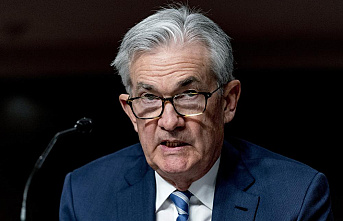Fata Keco was worried about possible side effects when she pulled up her sleeves in Sarajevo, Bosnia's capital. She said that the only thing she experienced over the next few days were moderately uncomfortable pains in her left arm and around the injection site.
Moreover, after being "very susceptible" for months to what she now calls "the most absurd theories," the 52-year old self-employed cleaner has joined the global community vaccine-believers.
According to her, some of the things she heard were: "That the coronavirus doesn't exist, that journalists were paid for panic spreading, that planes were spraying people with viruses at night, and that the powers that were were using vaccines to implant us with microchips to track our movements."
Keco stated, "Now I feel relief that I did something to protect me health after putting my life in danger for a long period." "I also don't mind the fact that it will make me life easier if i decide to go on a trip overseas."
Her transformation is not unique. This is especially true after many European countries tightened their anti-virus rules and required proof of vaccination from foreigners.
After receiving her first dose Tuesday in Sarajevo, Esma Dzaka (18), said that she wanted to travel and study abroad.
Health authorities in Sarajevo increased their efforts to distribute COVID-19 vaccinations as widely and effectively as possible this week. They have been hampered by public mistrust, disinformation, and general distrust. In the hope of making it easier for people to get their vaccines, they have started sending nurses to dispense vaccines at local council offices and shopping malls around the city.
Haris Vranic (Sarajevo's top official in health) said that he believes some vaccine skeptics are having a change of heart lately, not only because they want freedom to travel internationally, but also because "numbers don't lie."
Vranic stated that the statistic was clear: between 92% to 94% of the people who died in the current and third waves (of COVID-19), were not vaccinated.
Bosnia is still trying to heal from the devastating 1992-1995 ethnic war. It has only inoculated less than a quarter of its 3.3million inhabitants, one of Europe's lowest vaccination rates.
However, such mistrust of vaccines may not be surprising in Bosnia's poor, corrupted, and ethnically-divided country. Similar woes have also befallen many Balkan neighbors, some of which are members of the European Union.
Romania is an EU country with 19 million citizens. The vaccination rate was around 28% from mid-October to mid-October. However, there was a sharp rise in COVID-19 deaths and new infections in Romania. Some hospitals had to place body bags in their corridors because they ran out of space.
Our World in Data reports that fear combined with tighter anti-virus measures, such as a night curfew, and the requirement for proof of vaccination, recent recovery, or a negative test to enter most public venues, has caused Romania's vaccination rate to soar to more than 40%.
Ofelia Gligor said that she was afraid because there were so many negative rumors about vaccines. She received her first COVID-19 jab in Sighisoara on a cold December day. This small town is located 300 km (185 miles) north Bucharest.
The trainee nurse at 18 years old had to face her fears because she was unable to prove her vaccination.
She said, "My advice is to everyone now is to get vaccinated. Because sooner or later vaccines are going to become mandatory."
Similar circumstances were seen in Croatia, which joined EU in 2013. The situation in Croatia was similar, as the country joined the EU in 2013.
Despite occasional protests against COVID-19 restrictions on Croatia, the overall Croatian vaccination rate has been steadily increasing over 1.2% per semaine to cover nearly 55% of its population (4.2 million as of Dec. 11.
The introduction of mandatory COVID-19 vaccine passes in Bosnia is currently being held up due to the fact that it is ethnically and administratively divided. Although indoor mask-wearing is still allowed and social distancing remains a requirement, they are not always enforced.
Bosnia has had over 12,900 COVID-19-related deaths. But for Keco and other people, it was more than just statistics that helped them to accept the reality of the pandemic. It was a disagreement with Mahira, her daughter.
"She said, "Mom vaccines work 100%. Millions of people have been vaccinated and are doing fine. Don't be silly," Keco said. She also recalled that her son-in law's friend, who "claimed he wouldn't be caught dead getting vaccinated", got infected with COVID-19 and "felt broken."
Keco said that she finally understood the importance of getting vaccinated. She shook her head in confusion. "People and their chatter crazed my. For a while, I believed all their ridiculous stories.












